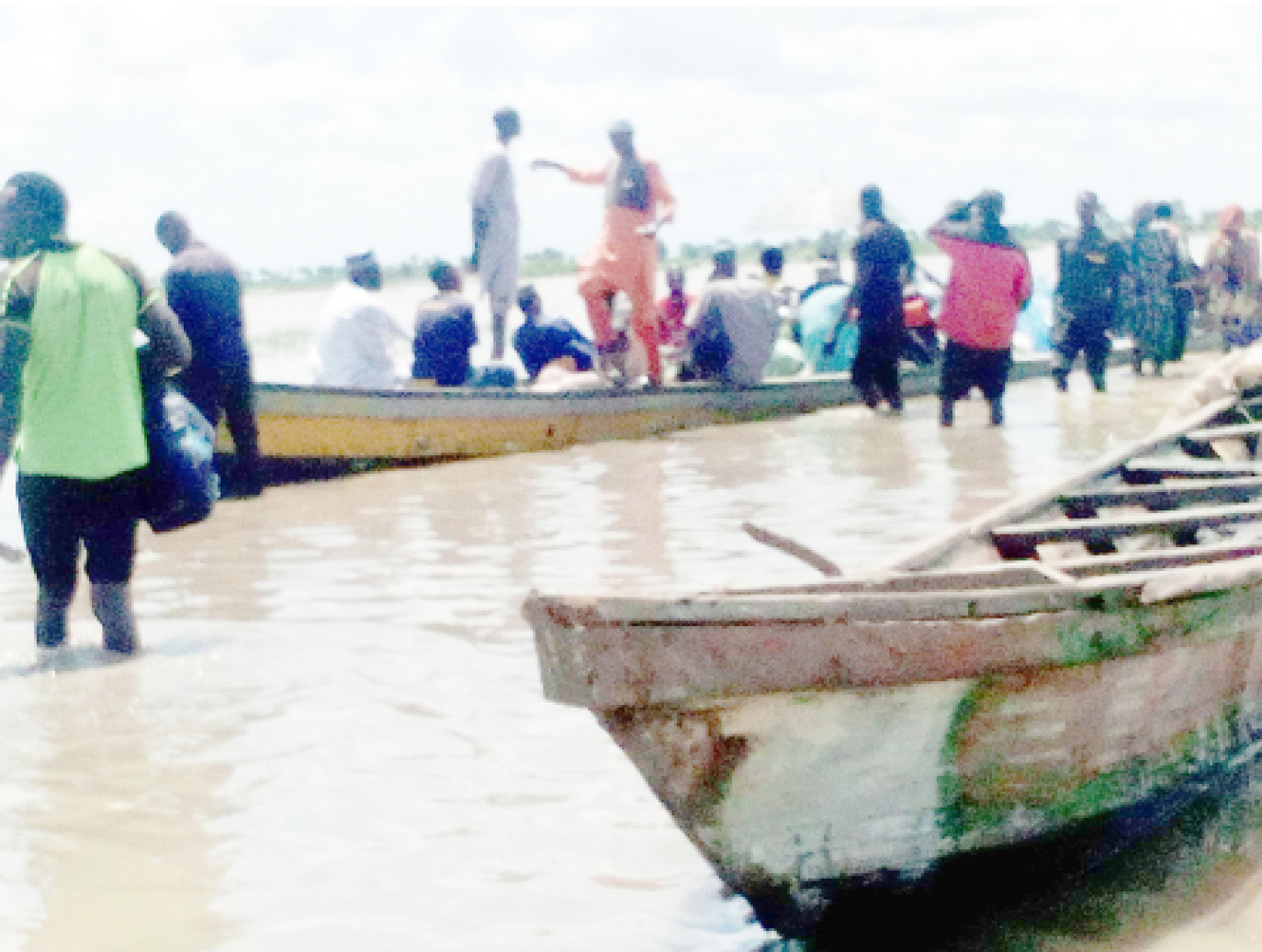Time to sanitise water transport
In what has become a sad, recurring decimal, every year the nation loses citizens to boat mishaps. Between March and September this year, the country lost 160 citizens in boat mishaps. According to figures compiled by this paper, 86 people were declared missing while 87 survived. The compilation showed that the incidents happened in many […]

In what has become a sad, recurring decimal, every year the nation loses citizens to boat mishaps. Between March and September this year, the country lost 160 citizens in boat mishaps. According to figures compiled by this paper, 86 people were declared missing while 87 survived. The compilation showed that the incidents happened in many parts of the country, with the highest casualties recorded in Sokoto State where 28 died, while Niger and Katsina recorded 20 and 18 deaths respectively.
In 2021, boat accidents claimed 281 lives with 25 missing and 162 survivors. And only last week, 76 people lost their lives in Anambra State, when a boat carrying 85 passengers from Onukwu to Nkwo Ogbakuba capsized.
The Zonal Coordinator of the National Emergency Management Agency, South-East, Mr Thickman Tanimu, in an interview on Saturday in Awka, said 85 people boarded a boat in an attempt to escape the rising water level, but that 76 of them died. Some other boat incidents have been recorded where people died while fleeing their communities due to flooding.
These deaths are lamentable as many of them were caused by overloading of the boats and non-usage of protective gears. The figures of the previous three years are largely the same, which sadly reflects the amount of attention being paid to these tragedies by the relevant authorities.
According to the National Inland Waterways Authority (NIWA), the regulatory agency of the waterways, Nigeria’s resource base of waterways spans 10,000 kilometres with about 3,800 kilometres of it navigable seasonally. This is by no means a vast resource, which if utilized effectively will widen the horizon of means of transportation for the country.
Also, many of these routes lead to neighbouring countries such as Benin Republic, Equatorial Guinea, Sao Tome and Cameroon. They can also be used to move goods across the country, thereby saving our roads frequent and costly wear and tear.
Unfortunately, that is not the case. The nation’s water transport sector is bedevilled with a myriad of problems ranging from outdated infrastructure to lack of regulation. In most cases, the boats used are locally manufactured and old while there is absolute disregard for safety such as the use of life jackets by passengers. More often, passengers are crammed into boats that have passed their time and journeys are undertaken without due regard to weather conditions or other safety issues.
Many people, especially those living in coastal areas, are forced to resort to these dangerous journeys because of lack of alternative means of transportation. Even where there is a possibility of road transportation, such roads are neglected and rendered impassable over the years. Some have been washed away by flood.
Unfortunately, governments, from local to federal, still do not see the need to pay attention to the waterways, thus they are left at the mercy of operators, who hardly know the rules. This is a dangerous trend not only because lives are being lost daily, but also to the economy of the country. We believe that if well-harnessed, our inland waterways could play a vital role in the movement of goods across the country at a far lesser cost.
As a first step, therefore, we suggest that NIWA leads the way in enlightening relevant state and local government officials on the need to pay more attention to the waterways. It can also design ways to bring in private operators who would put in money to provide modern boats and employ technology to move the sector forward. It must also be ready to apply relevant sanctions to violators of its codes of operation.
The state and local governments could help in enforcing operational rules to ensure safety on their waterways. They should set up bodies that will ensure strict adherence to operational codes on their respective waterways. They can also assist with incentives to enable more people to venture into the business. This would result in the injection of modern technology and the enhancement of safety. State and local governments must also see the sector as one through which they can generate more revenue and provide employment to their citizens.
We also appeal to the National Orientation Agency (NOA) to mount specific enlightenment campaign to let Nigerians know the need to adhere to safety rules when travelling on the waterways. These campaigns can be done in all the major languages to ensure that the message is passed appropriately.
We believe it is time governments and Nigerians pay more attention to this sector, not only to save lives but as way to generate more revenue and boost our economy. We must stop repeating the same mistakes and wasting precious lives.
